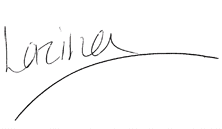Lately, I’ve been reading up on what exactly business casual means. I’ve come to the conclusion that business casual means very different things to different people. On one hand, you have the “banker type” who wears power suits 5 days of the week. In this industry, and many other corporate environments, one must adhere to business formal wear every day of the week – there’s no such thing as “casual Fridays”. When you dress professionally, you come across as more credible and confident and in many industries, this can convey the message that you have a high level of expertise.
On the flip side, some professions don’t fit into this category – the marketing expert, the trades company owner, the IT guru, the teacher, the restaurant owner, the government employee, and sooooo many more. In some of these industries (and MANY more), business casual could mean anything from yoga pants to jeans to khakis (and everything in between). One would have to use their judgement, depending on the industry they are in, as to what is appropriate and what business casual actually means.
Here’s my opinion. Overall, I think a business casual look should be classic, not overly trendy (unless you typically have a chic sense of style) and should flatter your favourite features. Here are some quick thoughts:
- Jeans are perfectly fine for a business casual look BUT you really need to think about the colour and cut of the jean. Opt for a dark-wash jean that comes in more of a straight-leg cut. You don’t want to wear jeans that are too loose (this can look sloppy) or too tight (this can bring you the wrong kind of attention in a work setting) in the event that you bump into the big boss.
- Although business casual is an opportunity to dress down, don’t take it as an opportunity to dress under. Regardless of your profession, you still want to come across as the expert so always focus on dressing just one step above your counterparts. That might mean wearing a casual dress shirt rather than a golf shirt or adding a blazer to jeans and a shirt.
- Show your personality through the use of colours, patterns, accessories and garment silhouettes. You don’t have to adhere to a “cookie-cutter” look. Think about what your likes and interests are and look to play these up. Perhaps you’re really into the arts. Think about highlighting this side of your personality by accenting your look with blouses or skirts with interesting, non-traditional cuts, patterns and textures.
Regardless of what we choose as business casual wear, always remember that our style (personal or professional) is a representation of ourselves. Whether we like it or not, people judge us all the time based on our appearance (and let’s be honest, we judge them too). Think about making the right impression rather than the wrong one. Here are a few things to steer clear of to help you make that “right” impression:
- Ladies, make sure that the “girls” are not on display on a casual Friday. People may not take you seriously if they are distracted by your look. Dress seriously, even for a business casual situation (no, this doesn’t mean you have to look boring).
- Make sure that you don’t forget to pay attention to details such as fraying at the bottom of jeans, cracks in your belt, wrinkles in your blouse or dress shirt, ill-fitting garments, and unpolished or dirty shoes (especially the back of your shoes… people are still looking even as you walk away).
- Maintaining individuality in any environment is important to many people, however, some people can take this WAY too far. Avoid showing too much skin, showing off piercing or tattoos (unless that’s encouraged or the norm in your industry), wearing shirts with words or phrases on them, and wearing clothes that are simply too tight (nobody wants/needs to see all the lumps and bumps and honestly, this is probably uncomfortable for you).
If you think some of these tips sound too stuffy or rigid just remember this – when others are confident in you (you want to come across as the expert right??), they trust you and want to do business with you. Understanding and developing an appropriate business casual look (for your industry) is something you have control over to help create credibility – use it to your advantage!

 Menu
Menu
